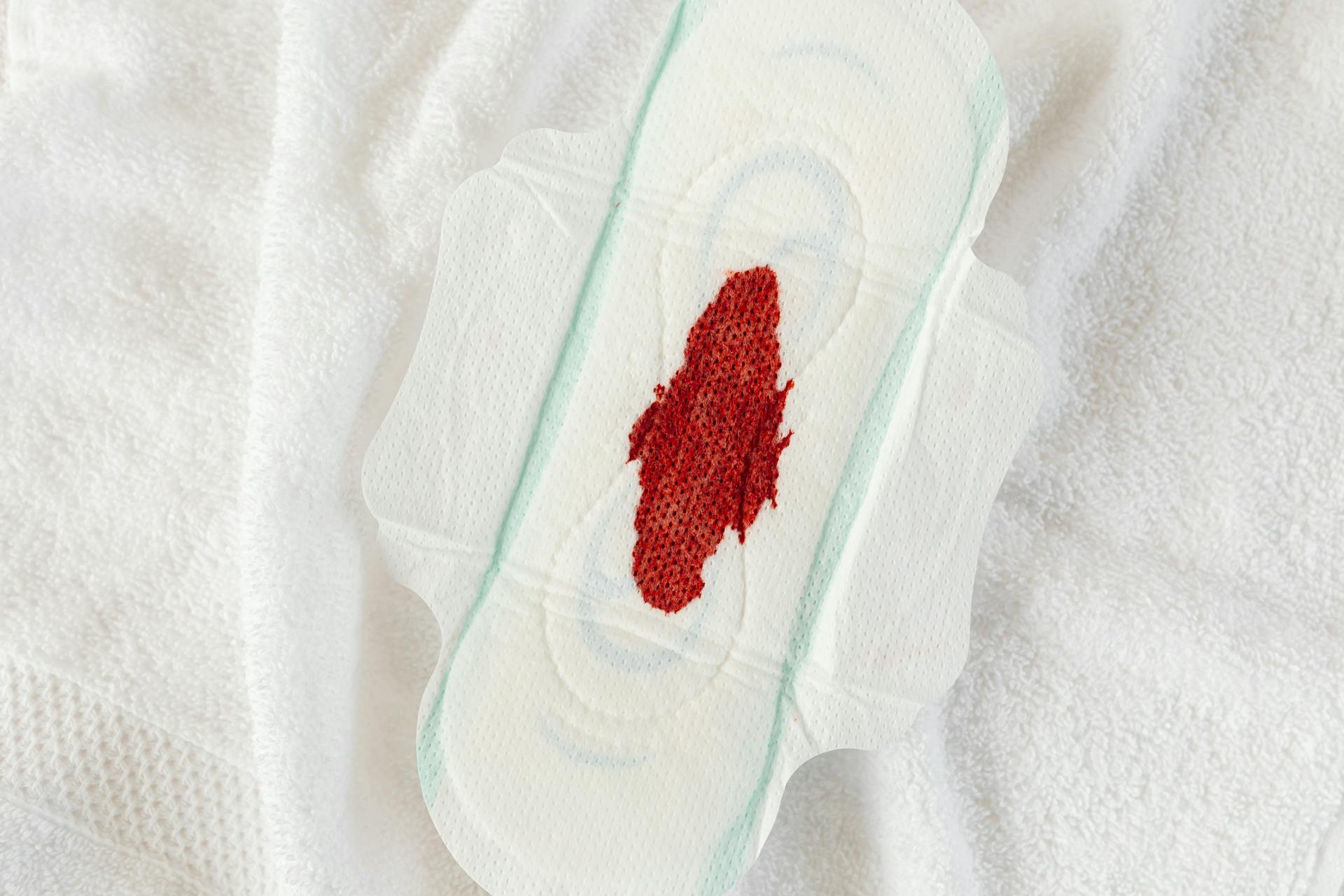
If your rabbit is peeing blood, it is important to take it to the vet as soon as possible. Blood in the urine, known as hematuria, can indicate a number of different health issues. Most commonly, this issue is indicative of a urinary tract infection. Other potential contributing factors can include bladder stones, inflammation or even trauma. In any case, if your rabbit is exhibiting symptoms such as frequent urination or loss of appetite paired with bloody urine, visit your veterinarian immediately for further advice and medical attention.
Before taking your little one to the vet there are some things you can do in order to ease their discomfort and help manage their condition prior to treatment:.
• Keep them hydrated! Ensure there’s always fresh water available for them throughout the day; add fruits and vegetables with high water content like celery or lettuce into their diet if necessary.
• Provide additional heating sources such as warm towels or a heated pad (your vet will be able to recommend the right size), since rabbits feel better when they are warm! This can aid with pain relief too. If you already have these items they should be thoroughly washed before being used on a sick bunny again!
• Maintain a quiet environment- Minimize stressors by playing soothing music near them continuously (not loud) and keeping other loud noises away from its hutch/ habitat chamber. Additionally maintain regular feeding times but limit treats/ snacks (high in sugar) due to its natural tendency to increase thirst which may worsen dehydration levels further- keep an eye out for changes related dehydration & maintain an adequate water supply regardless!
Your vet will likely suggest antibiotics along with dietary modifications if an infection has been identified - stick closely to these instructions so that your bunny can recover back into full health soon!
Worth a look: Bunny Nest
What should I do if my rabbit is not producing urine?
If your rabbit is not producing any urine it could be due to an underlying medical condition or dehydration, so it’s imperative to take your rabbit to the vet for a professional diagnosis and treatment plan as soon as possible. Some conditions that may affect urination in rabbits can include bladder calculi, infection, and urinary blockages. In order to help diagnose the issue, your veterinarian will likely need a physical exam and diagnostic tests such as x-rays or a urinalysis.
In addition to seeking medical treatment from a veterinarian, there are other steps that you can take at home in order to help support your rabbit's health – especially if they are not producing urine. First of all, make sure that you consistently provide plenty of fresh hay and water for your rabbit every day. Hay should always be available in unlimited quality for a healthy gastrointestinal tract which facilitate proper absorption of liquids throughout the body adequately hydrating tissues including organs essential for urination such as kidneys. Secondly, ensure that enough exercise is incorporated into their daily routine as regular exercise and staying active has been proven to have many health benefits including increased circulation throughout the body which may help stimulate urine production when needed. Lastly you should try adding different types of fresh vegetables into their diet given certain vitamins have been shown effective in improving kidney functioning and contribute to adequate hydration of the body - some examples include carrots (Vitamin A), sweet potatoes (Vitamin B6), eggplant (Vitamin E) broccoli (vitamins A &K) dark leafy greens(iron & magnesium).
Although these recommendations may not resolve all underlying conditions affecting urination in rabbits they could prove useful if followed along with your veterinarian's recommended medical treatment plan.
Intriguing read: Cat Licks Flea Treatment
How can I tell if my rabbit is urinating blood?
If you’re a pet owner, it is not uncommon for you to worry about the health and wellbeing of your rabbit. One of the main signs that a rabbit could be in trouble is urinating blood. If you suspect your rabbit may be urinating blood, it’s important to take them to a veterinarian as soon as possible for treatment and testing.
Pets with urinary tract infections can show signs such as an increased frequency or straining to urinate, licking at their privates area or abdominal pain. However, if these symptoms are commonly observed they could indicate other issues as well as overall discomfort and sickness that isn’t necessarily linked to bladder diseases directly. That’s why it’s important to look out for other warning signs such as urine with any type of colouration that isn't clear – this would indicate whether or not there is significant presence of blood or some other material that isn't meant to be present in healthy rabbits who don't have an infection or disease.
Using gloves when collecting some fresh urine sample from the cage floor will help (but try not move them if possible) and then examining this sample against white surface might help reveal further clues on what's causing the issue by noticing if there is any discolouration due possibly from traces of red/blood which would indicate possible issues within the urinary tracts (although further testing will provide more accurate results). This can also show up at first glance when looking inside their cages but may often go unnoticed since rabbits have fur around their entire bodies which tends make things difficult during inspection time; so keep an eye out when cleaning/closing time arrives just in case something was missed earlier on during normal observation periods alongside regular health checks performed by caregivers etc..
In conclusion if you believe your rabbit may be experiencing any type of abnormal behavior regarding its scheduled toilet activity either visually through the feces itself (runny stool)or even though excessive amounts of dehydration contact urgent veterinary attention ASAP before worse scenario unfolds!
Broaden your view: Baer Testing
What are the signs and symptoms of a urinary tract infection in rabbits?
It's important for owners of pet rabbits to be aware of the signs and symptoms of a urinary tract infection in rabbits, as this is an unfortunately common health issue among these animals. Left untreated, a urinary tract infection can cause serious, even life-threatening issues in rabbits. Here is what to look out for:
The most common symptom of a urinary tract infection in rabbits urine leakage around their hind end. This is often caused by inflammation in the bladder or difficulty with urination that leads to dribbling urine while they're squatting. Other signs include frequent urination attempts (or just plain disinterest), straining while trying to defecate or urinate, and hunching up when touched around their tummy area. You may also notice your rabbit having increased thirst and licking or biting the perineal area frequently.
If you observe any of these behaviors coupled with soft droppings from your rabbit, it's very likely they are suffering from UTI and require immediate medical attention to prevent further complication from the infection. Your veterinarian will likely examine your pet's urine during diagnosis and may recommend antibiotics if needed as well as dietary changes that could improve bladder health such as increasing fresh hay for fiber intake which helps keep waste moving through the digestive system more regularly instead of left sitting stagnation in their bladder or intestines leading towards UTI complications down the line!
Consider reading: Can Birds Be Left Alone for a Week?
What can I do to help prevent my rabbit from getting a urinary tract infection?
It is important to know that urinary tract infections in rabbits can be very serious, so prevention is key! Here are some tips to keep your rabbit healthy and free of infection:
1. Provide your rabbit with unlimited access to fresh water. Be sure to check the water bowl regularly for dirt and debris, and replace it with clean water as needed.
2. Feed a high-quality diet that includes hay, fresh vegetables, and a limited amount of pellets tailored specifically for rabbits (avoid high starch foods).
3. Promote good hygiene habits; give your rabbit a weekly bath or provide easily accessible litter boxes for them to use throughout the day so they don’t have to ‘go’ where they sleep or eat.
4. Regularly observe your rabbit - since early detection is key when facing any illness in pets, be on the lookout for any changes in their eating/drinking/urination habits which could indicate an issue like a urinary tract infection (UTI).
5. Keep their living area clean - not just spot cleaning but do an overall deep clean once every 1-2 weeks using pet-safe disinfectant; this will help prevent bacteria from thriving in their home environment which can lead to UTIs if left unchecked over time 6 Make sure that you are allocating plenty of time with your rabbit—it's vital that they get proper exercise every day along with plenty of socialization and stimulation such as offering enrichment toys (or even hiding treats around their cage!). Also check for any potential hazards like sharp edges/corners on furniture which could injure them while running around or playing.
By following these simple prevention tips, you greatly lower the chances of your beloved pet developing a serious condition like urinary tract infection!
A unique perspective: How to Stop a Dog from Pacing around the House?
Are there any specific dietary changes I should make to help my rabbit if it is urinating blood?
If you have a rabbit urinating blood, it is important to take the necessary steps to diagnose the underlying cause and begin treatment as soon as possible. As part of the overall health plan, it is also important to make dietary changes that can help improve your rabbit's health and well-being.
Since rabbits are strict herbivores, their diet should be composed mostly of hay plus some fresh vegetables and fruits. When urinary tract diseases are present, additional dietary considerations should be made to reduce symptoms and promote healing. It is best to feed your rabbit a hay-based diet that is high in fiber content with low amounts of carbohydrates or simple sugars from fruits and vegetables. The ratio should be approximately 80% hay or grassy material by volume; 10% pellets; 10% fresh produce items like carrots, celery tops, apples or pears – especially those high in Vitamin C along with other leafy greens like kale or collard greens for their essential nutrient content; supplements like vitamin E & C tablets may also be beneficial for some rabbits diagnosed with a UTI since they contain natural antioxidents which help fight inflammation and aid in wound healing. In addition, always monitor your rabbit’s water intake as dehydration can increase risk for bladder issues such as cystitis (inflammation of the walls of the bladder). Offer plenty of fresh water every day so he/she stays hydrated!
Overall these lifestyle modifications will help reduce your rabbit's risk for further complications due to its urinary tract infection while promoting better wellness habits all around!
Sources
- https://www.pcom.edu/do/
- https://www.britannica.com/dictionary/do
- https://www.manutd.com/en/news/detail/erik-ten-hag-discusses-derby-and-what-man-united-need-to-do-on-saturday
- https://acronyms.thefreedictionary.com/DO
- https://www.sohu.com/a/628315004_99981833
- https://www.merriam-webster.com/dictionary/do
- https://www.dictionary.com/browse/do
- https://www.thefreedictionary.com/do
- https://www.thesaurus.com/browse/do
- https://www.merriam-webster.com/thesaurus/do
- https://en.wikipedia.org/wiki/Do_(singer)
- https://www.vocabulary.com/dictionary/do
- https://www.nj.com/highschoolsports/2023/01/boys-basketball-hoboken-defeats-american-history.html
- https://finance.yahoo.com/quote/DO/
- https://todo.microsoft.com/
Featured Images: pexels.com


